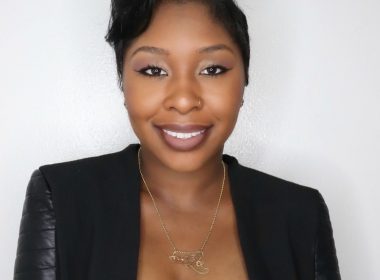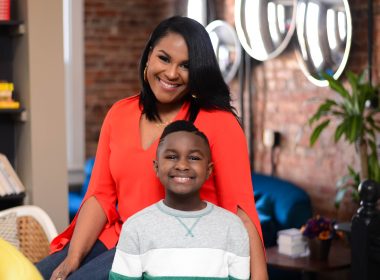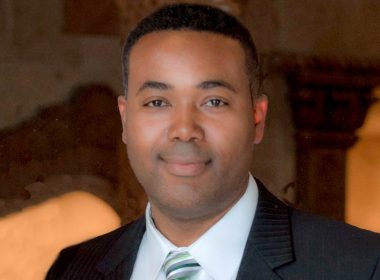
Maggie Anderson’s shocking and enlightening book, Our Black Year, was born from what many black people say with nauseating regularity, but that the Anderson family actually practiced. The power couple bought exclusively from black-owned businesses for an entire year and documented their profound findings through their Empowerment Experiment website and Our Black Year book.
“The Empowerment Experiment is grounded in my family’s public pledge to live off of black businesses and talent, and to buy black for an entire year. Since then, the Empowerment Experiment has evolved into a movement where we encourage consumers of all kinds and races to support black businesses,” says the Chicago native who’s called “Mrs. Buy Black” at speaking engagements around the country. “And in doing so you counter the social crisis that disproportionately impacts black people. We believe that it’s a beautiful thing that is just as American as buying white, buying military, etc.”
Maggie Anderson and her husband most certainly could be totally immersed in the delightful trappings that their elite education and pedigree have earned them, totally disconnected from the average black person’s experience. John was an Ivy League-educated executive for Ernst & Young with a master’s degree from the world-renowned Kellogg School of Management from Northwestern University. Maggie boasts an undergrad degree from powerhouse Emory University and has both a law degree and master’s degree from the University of Chicago, where she learned constitutional law from then-professor Barack Obama (you might have heard of him). She has worked as an executive for McDonald’s.
But the Anderson family, instead, have become the talk of black America and the nation because they systematically executed the philosophy of Ujamaa — cooperative economics — that our forebears have admonished and pleaded with us to do for over a century. They spent an entire year patronizing African American proprietors.
Our Black Year, set for a national book tour in February, documents in detail their delightfully entertaining — yet disheartening — account of trying to find and spend money with black American businesses. It also talks about the Kellogg study born from the Anderson’s quest that “proves, through science and not rhetoric, that supporting black businesses empowers black communities,” Anderson said.
What the Andersons learned:
- “Finding out that half the businesses that we thought were black are not black-owned.”
- Our Black Year exposes the retail and food deserts that exist in the black community. We were living that life that most black consumers live: poor services, inferior goods and high prices from black — and mostly nonblack — business owners,” Anderson said.
- “So many industries and markets are upside down, where we dominate in terms of market share, but we have zero representation: House[hold] products, consumer electronics, children’s wear, cellular service [and on and on].
- “How just in Detroit, we [comprise] 50 percent of Hennessy’s market share. But what do we get in return for that? What child has Hennessy ever sent to school? Where in Hennessy’s supply chain do you see any black businesses? We want people to think about that for a minute. When you are out there flossing Hennessy, what does you and your community get out of it? What have they ever done for black businesses?
The power couple’s Empowerment Experiment pledge began innocently enough as they indulged themselves along Chicago’s upscale section of town. “It started in 2003. We were having dinner for our anniversary at a posh restaurant on Chicago’s Magnificent Mile. We spent $600 at 5-star Tru restaurant,” she said. The conversation steered towards what it always seems to go toward: the urban plight.
“We started talking about what are we going to do, that maybe we should be mentoring. And then the bill came,” said Maggie Anderson. But when the waiter brought the bill, the Andersons were also given a powerful epiphany. “The bill was $600 and we said to ourselves, ‘we are part of the problem.’ We just spent $600 with this restaurant and we know that none of it is going to [be used] to help our people. That night, we decided to make the pledge to support black businesses. We talked about what a lot of black couples do: Let’s buy black for a whole month. But then it went to three months, and then for a whole year. And we said ‘hey, let’s document it. Let’s build a movement and tell the press and build a website.’ ”
Anderson asks that more black people, regardless of education and social status, join her family’s movement at www.eefortomorrow.com, and change the paradigm of black America forever — one black business at a time.
–terry shropshire










